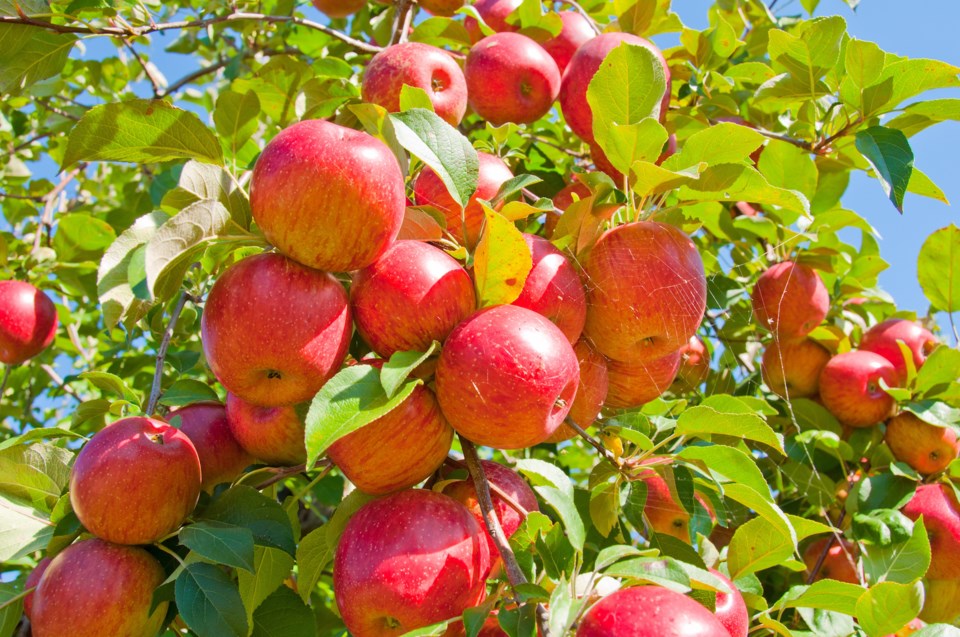Health Canada’s Pest Management Regulatory Agency (PMRA) released a final decision recently on the applicable uses of the fungicide, mancozeb after a years-long process.
Popular among vegetable and fruit growers, mancozeb is a broad-spectrum fungicide with a low risk of parasite resistance that has been used in Canada since the 1960s.
Today, according to Health Canada’s pesticide registry, mancozeb is used in at least 40 registered products.
Under the Pest Control Products Act, the PMRA regularly re-evaluates pesticides to ensure they’re safe for people and the environment.
In 2018, a document outlining proposed changes to the use of mancozeb was released, revealing that the PMRA was proposing cancellation of all mancozeb use, aside from greenhouse tobacco, “due to risks to human health and the environment that were not found to be acceptable.”
“I was in an apple meeting and I was told apples were cancelled, and my face went white,” said Charles Stevens of the moment he was told of the news.
Stevens, an apple grower in Newcastle and chair of the Ontario Fruit and Vegetable Growers Association’s crop protection committee, said mancozeb is likely the most important fungicide to the apple industry — he says he’s used it on crops for over 40 years.
Leading a mancozeb task force, Stevens, Craig Hunter, Caleigh Hallink-Irwin, and Jason Smith pushed back against the government’s proposal, meeting with then PMRA executive director, Richard Aucoin, in 2018.
“It was the most important crop protection meeting of my life in this industry,” Stevens said.
“They pulled the final decision back which has never happened in North America ever, so this was a big deal,” he explained.
“There were a lot of things that we had presented that the executive director had not heard. He was not happy with his staff that had done the re-evaluation. That was all there was to it; they had not done a good job and he recognized that and he put the hammer down,” Stevens said of the agency’s decision to pull back.
That started the year’s long process of redoing the re-evaluation of mancozeb, which culminated in a final decision being released on Nov. 19 this year.
In an emailed response to questions from Niagara This Week, Health Canada spokesperson Kathleen Marriner said the agency’s evaluation found mancozeb products meet current health and environment standards when used with new mitigation measures.
Under the 2020 decision, use is approved for: ground and aerial foliar application to potatoes; and ground foliar application on apples, onions, sugar beets, ginseng, field cucumbers, field tomatoes, grapes, pumpkin, squash, and melon (but not watermelon), and in-furrow application to onions.
According to Marriner’s email, use has been repealed for all seed treatments, greenhouse uses, and use on pears, carrots, celery, lettuce, watermelon, lentils, wheat, alfalfa grown for seed, as well as ornamentals and forestry uses.
Mancozeb also cannot be applied using hand-held equipment, or used for commercial-class wettable powder or dust formulations.
“At the end of the day, they haven't changed the amount used in Canada,” Stevens said, explaining that usage limits had previously been granted to potatoes, leaving the rest of the horticulture sector wanting.
In this year's decision, removing two uses of mancozeb from potatoes provided enough uses to be distributed among other crops, while staying within limits of the total amount of the fungicide that can be used.
“It was worth the effort, and it got done correctly at the end of the day,” Stevens said.
Jordan Snobelen is a reporter for the Local Journalism Initiative, which is funded by the Government of Canada, with Torstar Community Brands.



